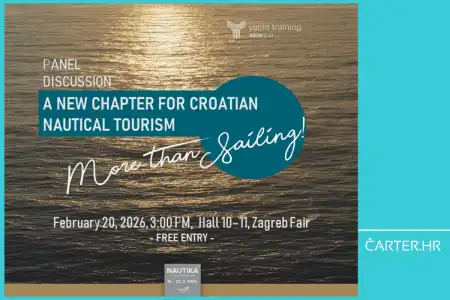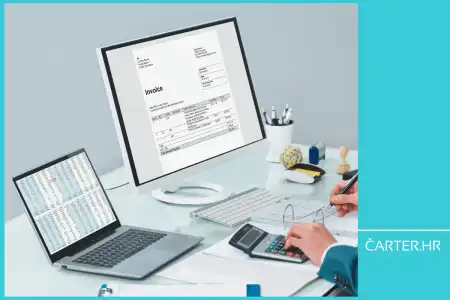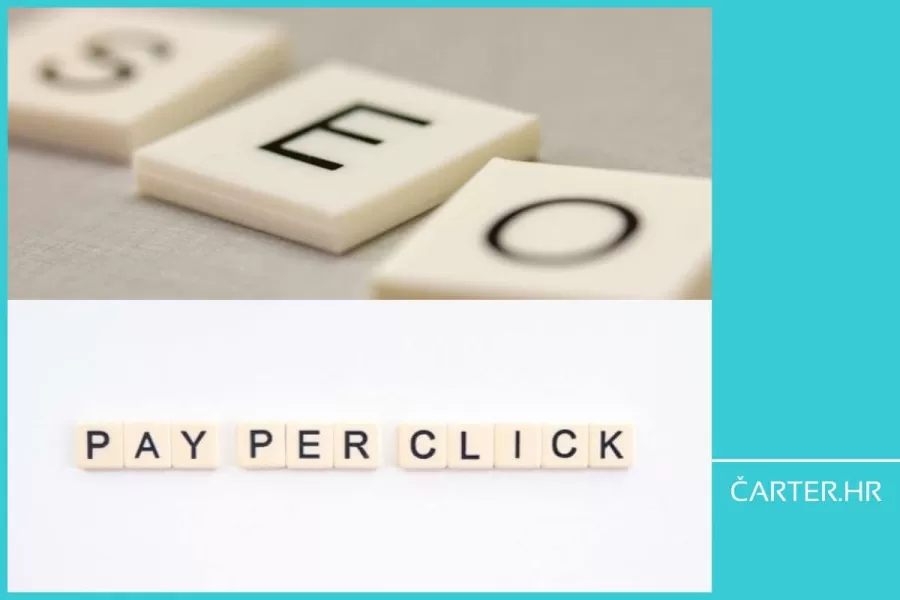
SEO is ideal for building online authority and achieving organic visibility. It also requires continuous dedication, and the results are long-lasting. PPC offers a quick solution and achieves results, but its effect is short-term. What to choose then?
Are you present online, and how much and in which way is crucial for the success of your business. And that is why it is necessary to think carefully about which strategies to use.
Two digital marketing strategies stand out in particular:
- SEO (Search Engine Optimization)
- PPC (Pay-Per-Click - advertising paid per-click)
Although these two strategies are sometimes considered contradictory due to their differences, SEO and PPC are the primary means your target audience finds you.
They are also the main way your target audience (future consumers) react to the content on your website.
Both of these strategies have their differences (big ones) and very few similarities, but in combination...
But let's start in order.
What is SEO and how does it work?
SEO (Search Engine Optimisation) directs digital attention to specific web content through search platforms. This process is not only sophisticated but also a kind of technical manipulation.
SEO is also an art, and it requires understanding how search engines like Google interpret and rank web pages.
The key to SEO is the precise use of keywords. Keywords act as magnets for the target audience, directing them to relevant content. And that relevant content is (of course) on your website.
In addition, quality backlinks are also vital for SEO. We can see them as digital recommendations. They serve to increase the credibility and authority of your website in the eyes of search engine algorithms.
But SEO is not just about keywords, content and backlinks.
Technical aspects such as page load speed, mobile responsiveness and user experience are key factors contributing to overall SEO success.
An example of a successful SEO strategy can be seen on pages optimised for specific queries, such as "optimising yacht charter”. Such a website appears at the top of Google searches and offers the user exactly what he is looking for. This way, it creates value for both the user and the site owner.

Advantages and disadvantages of SEO
The biggest advantage of SEO lies in its ability to generate long-term online visibility. SEO allows your web page to occupy a specific position for certain terms. This way, you ensure a continuous and stable flow of traffic. In marketing, such traffic is also called organic traffic.
However, achieving organic traffic and visibility has its own challenges - SEO requires strategic and careful planning, as well as continuous optimisation. Optimisation is necessary because search engine algorithms and market trends change regularly.
SEO requires patience, consistency and dedication.
Despite all the challenges, if we can call them that - SEO was and remains the main element of the digital strategy of every business. And for one reason - its long-term results often outweigh the initial effort and investment.
SEO Advantages:
- Long-term online visibility: helps websites achieve and maintain a high position in search engine results, which ensures long-term visibility.
- No direct cost per click: it does not require payment for each click, making it more economically advantageous.
- Continuous organic traffic: enables a constant flow of organic visits, which is crucial for maintaining web traffic.
- Increases website authority: well-optimised websites are often considered more reliable and relevant, and this authority is the reason for a high position on Google.
- Adaptable to market trends: can adapt to changes in consumer behaviour and market trends, allowing flexibility in strategy.
SEO Disadvantages:
- Time-consuming: establishing effective SEO can take time, especially in competitive markets such as nautical.
- It requires constant optimisation: SEO is not a one-time job; it requires constant attention and updates to maintain results.
- Slow initial results: unlike paid advertising, SEO can take longer to see "real" results (experts say as much as 3-6 months).
- Dependence on search engine algorithms: SEO strategies must adapt to changes in search engine algorithms (which are not very frequent, but do happen).
- It requires strategic planning and expertise: effective SEO requires knowledge and understanding of this part of digital marketing and good planning skills.
What is PPC, and how does it work?
PPC (Pay-Per-Click) is a digital advertising model that has transformed the promotion of products and services.
With PPC, every click becomes currency - you pay when the user actively reacts to your ad. Simply put - no clicks, no charge.
PPC also enables precise audience targeting, where specific demographic groups, interests or behaviours can be selected with the ad with the help of audience analysis and segmentation tools.
PPC (Pay-Per-Click) advertising is extremely functional in attracting the target audience quickly and directly - you can determine your budget and direct advertising to those most interested in your offer.
For example, through PPC, your charter company can effectively target yachting or luxury travel enthusiasts. All you need is to create ads that highlight the exclusivity of sailing while displaying your most attractive vessels and most beautiful destinations.
PPC provides the ability to monitor advertising effectiveness instantly. Which means you can adjust your campaigns in real-time.
With PPC, you can optimise costs and increase ROI (Return on investment).
While the trends around you are changing rapidly, and the competition is increasing, PPC is a strategy for all those who want to reach their target audience.
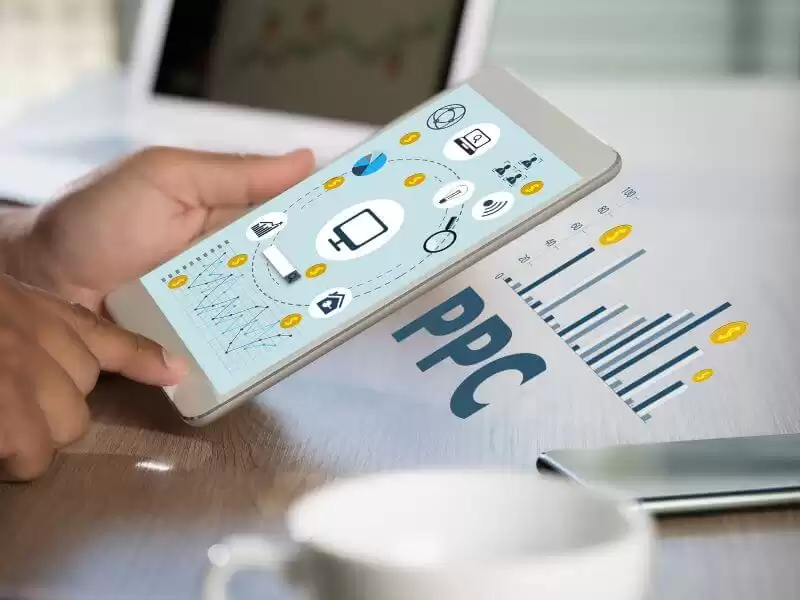
Advantages and disadvantages of PPC
One of the most prominent advantages of Pay-Per-Click is the ability to quickly highlight a brand, product or service in the digital world. We could say – to the right people at the right time.
PPC also enables highly personalized advertising using demographic and interest group segmentation.
However, this advertising model has its own challenges. The primary disadvantage is that each click on the ad means a cost, which can drain the budget quickly, especially in highly competitive niches.
In addition, the effectiveness of PPC is often short-lived - ads remain visible only as long as they are paid for. With the end of the campaign, the presence on the market disappears. PPC also requires continuous adjustment and monitoring for campaigns to remain effective.
PPC requires knowledge of market trends, competition and consumer behaviour.
But PPC is a digital marketing tool with which a well-hit combination of creativity and analytical approach can result in a significantly increased ROI.
Advantages of PPC:
- Rapid visibility: campaigns quickly increase your ad's online visibility, enabling instant exposure to your target audience.
- Precise targeting: audiences are targeted based on demographics, interests, location, and online behaviour - in detail.
- Measurable results: detailed analytics allow campaign performance tracking, including clicks, conversions and ROI.
- Budget flexibility: enables cost optimisation, as the budget can be controlled and adjusted according to needs.
- Ideal for short-term campaigns: especially effective for promotions that require a quick response or a temporary increase in visibility.
Disadvantages of PPC:
- Cost per click: each ad click is charged, which can add up to total costs quickly, especially if there's a lot of competition.
- Short-term effectiveness: the visibility of a PPC ad ends as soon as it stops paying, so it has minimal long-term effects.
- Need for expertise: managing PPC campaigns requires knowledge and experience, which can be challenging for those without experience in digital marketing.
- High competition: in some sectors, including nautical, high competition means high prices per click and reduced ROI.
- Dependence on budget: PPC campaigns depend on the available budget, which limits the options of small businesses or individuals with limited funds.
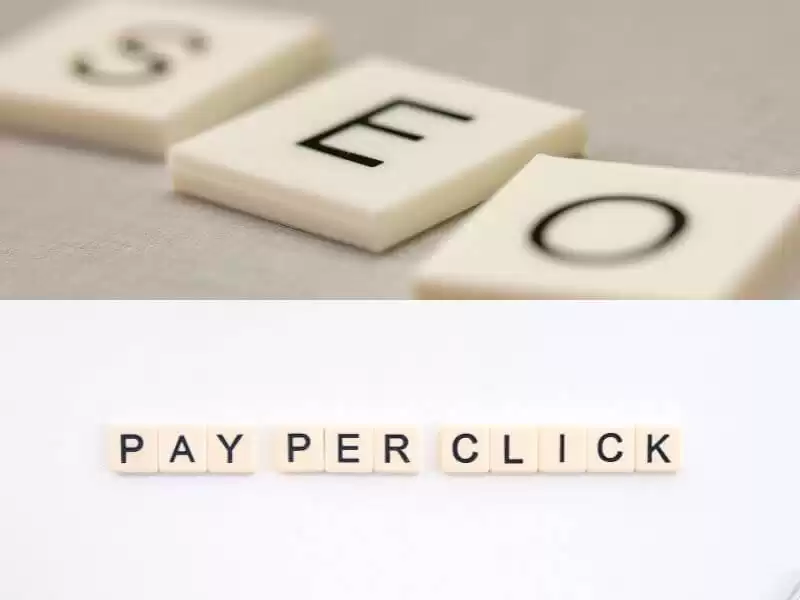
SEO vs PPC - cost comparison
When we compare SEO and PPC, in what is essential - in costs - the primary difference lies precisely in the structure of costs and the method of investment.
Although it requires less direct costs, SEO implies a long-term investment in creating quality content, technical optimisation of the website and building backlinks. It means hiring an internal or external SEO expert.
SEO takes time but results in long-term gains, such as steady organic traffic and increased online visibility.
The PPC model offers instant visibility and quick results but comes at an ongoing cost. Each ad click represents a direct cost, especially in highly competitive niches.
The budget for PPC campaigns should be carefully planned and optimised to maximize return on investment. The effectiveness of PPC depends on continued funding; as soon as the payment stops, the ad disappears.
SEO vs PPC - time frame comparison and expected results
After reading everything, we understand that you would like to know the time frames and expected results for SEO and PPC.
SEO can be compared to a marathon - results gradually develop over time. The initial phase can take months, but the results are usually long-lasting and stable once a high ranking is achieved for specific keywords.
We will then compare PPC with sprint. It gives visible results quickly but in the short term. It is ideal for limited marketing campaigns or urgent promotions.
PPC enables instant positioning at the top of search results, but its effectiveness depends on continuous investment in ads. As soon as the payment stops, the visibility (and traffic) disappears.
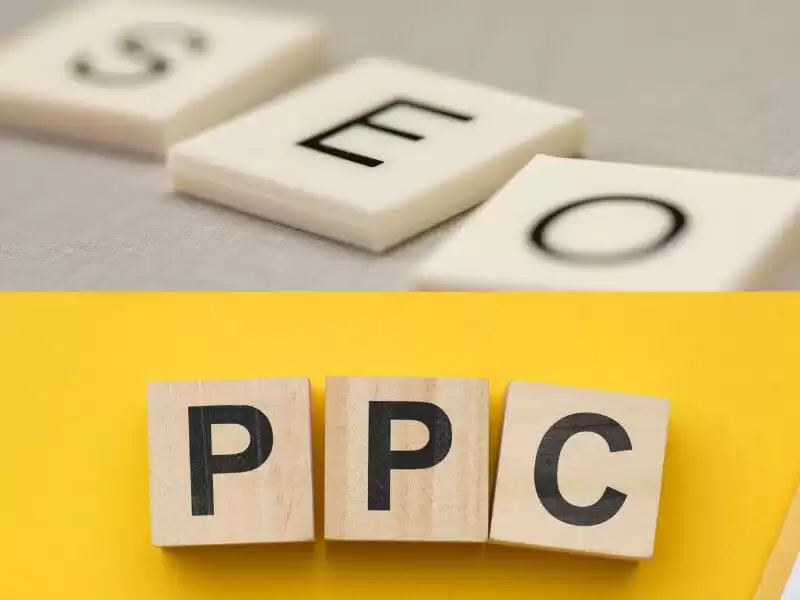
Which is the better choice, SEO or PPC?
For an effective digital marketing strategy, a combination of both is recommended – SEO for building a long-term online presence and PPC for instant visibility and targeted campaigns.
While each of them requires different strategies and investments, when used together, they can maximize overall performance and achieve optimal results.
SEO and PPC, in combination, make it possible to exploit the full potential of digital marketing.
In short, the right choice between SEO and PPC depends on your goals, the resources you have at your disposal, and time frames.
And which ones are they? You yourself will know that best.
Categories of trends
- News
- Sale
- Marketing
- SEO
- Web design
- Social media
- Technology
- Regulations
- Management
- Education
- Finances
- User experience
Newsletter
Sign up for the newsletter and receive the latest trends and tips straight to your inbox
